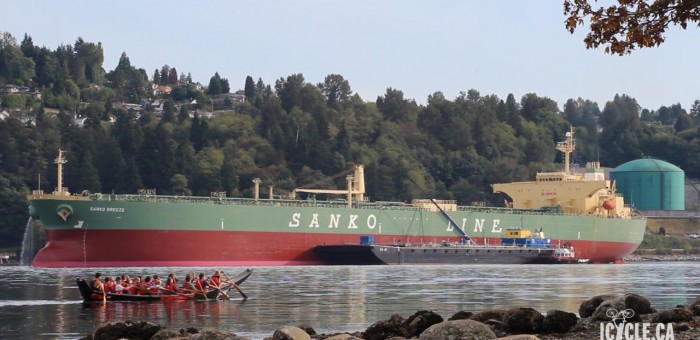Issues & Community Blog - Andrew Weaver: A Climate for Hope - Page 62
Bill 6 – Employment Standards Amendment Act, 2018
Yesterday in the BC Legislature we debated Bill 6 – Employment Standards Amendment Act, 2018 at second reading. This bill provides new, extended and more flexible maternity, parental and compassionate care leave provisions that would meet or beat standards set across Canada.
Below is the text and video of my short speech.
Text of Speech
A. Weaver: I, too, rise in support of Bill 6, Employment Standards Amendment Act, which makes a number of substantive amendments to the existing Employment Standards Act — in particular, with respect to issues of compassionate leave, paternity leave, maternity leave, family leave, as well as matching these with federal legislation that was passed late last year, in November, I believe it was.
In fact, one of the things that happens, as this bill is being debated and discussed, is that we’re proposing here to mirror the federal legislation, which essentially extends employment insurance benefits to those with newly adopted children or parents of newborns from 12 months to an extended 18 months. They’re allowed to have their EI benefits.
B.C., by passing this legislation, would ensure that not only federal employees that are subject exclusively to the federal legislation but also in British Columbia, here, we would be protected both for job security and be eligible to be part of this extended EI. It doesn’t actually give people more money. It allows families to determine if they wish to take the amount of money that would be spent and just distribute it over a longer period.
Some have actually criticized the federal legislation, which we’re proposing to adopt here, by arguing that it is not doing enough to actually support new families by not providing additional resources. Nevertheless, I would argue that’s an EI issue and a federal issue and not one in the purview of our jurisdiction here. So I think it’s important that we actually do follow the federal lead in this area.
One of the most important changes, of course, in this legislation is the additions that are truly provincial with respect to extending the amount of leave that is eligible for those whose child, most unfortunately, happened to be taken away in an incident. My colleague and friend, the Minister of Education and the MLA for Victoria–Swan Lake knows the Dunahee case here, a very famous case here in Victoria. And I’m sure such leave…. I can only imagine the hurt that the parents of Michael went through and continue to go through. But were such leave available to them at the time, I think it would have been very beneficial. Hopefully, nobody needs to claim this benefit. I’m sure that’s the hope of all of those in this House, but it’s critical that it be there for those who do need it.
The amendments to compassionate care leave are triple the length of the leave, from eight to 27 weeks — again, a very important addition.
In terms of the other issue…. Heaven forbid. I can only imagine the loss of a child, and it would be something that would be devastating to any family. To give extended leave, protected leave, job security on that leave, over an extended period of time to parents whose child under the age of 19 were to be tragically lost is the sign of a government that recognizes the importance of putting families first, of being there for families to support them in their times of greatest need.
I applaud government and, in particular, the minister who brought this piece of legislation forward.
Other highlights within this piece of legislation, of course, are that maternity leave can start two weeks earlier, 13 weeks prior to the due date rather than 11 weeks, and that it can go longer after birth, where the employee requests leave after birth, from 17 weeks rather than six weeks. It also increases leave from 37 weeks to 62 weeks for adoptive parents and allows that leave to start no later than 78 weeks after the child is born, instead of no later than 52 weeks after the child is placed with the parents.
There are many, many reasons why this bill, I’m sure, will be passed and wholeheartedly supported by all sides of this House. The fact that it doubles unpaid leave time is important. It doesn’t address the financial barriers, the affordability issue for parents who have to spread out the benefits over a longer period of time, and I look forward to the government continuing to develop and implement its strategy to deal with the affordability crisis here in B.C.
I’m not sure whether this bill actually has provisions to deal with stillbirths or miscarriages. I would seek to ask the minister, during committee stage, whether, in fact, the bill, as constructed, does recognize stillbirths or late-term miscarriages as grounds for leave, based on the fact that death of child might be considered there, where, here, the child was born, in the case of a stillbirth, sadly, dead on birth or, in a late-term miscarriage, sadly.
I mean, we all know people who have had a traumatic effect on their lives, and perhaps government might be open to thinking about that over the coming days — about whether (a) this is dealt with in the legislation or (b) if, in fact, changes need to be amended or added to account for that.
With that, I have spoken with my colleague from Saanich North and the Islands and also my colleague from Cowichan Valley, neither of whom will speak to this bill. We collectively support this bill and look forward to bringing it forward in legislation.
Video of Speech
Bill 11 — International Commercial Arbitration Amendment Act
Today in the legislature we debated Bill 11: International Commercial Arbitration Amendment Act, 2018 at second reading.
Below I reproduce the text and video of my second reading speech.
Text of Speech
A. Weaver: Thank you, Hon. Speaker. I had thought that it was a much longer speaking list, and that I would be speaking subsequent to other speakers. But I do thank you for recognizing me.
I arise to speak in favour of the bill before us. That is Bill 11, International Commercial Arbitration Amendment Act 2018. As has been mentioned, this is an important piece of legislation that modernizes our existing International Commercial Arbitration Act, taking into account the changes that were done by the United Nations Commission on International Trade Law in 2006 in their updates to model legislation there.
This comes on the recent move that Ontario did to update its act in March, 2017, where they did something very similar, in a very similar attempt to modernize the original 1985 model law that was adopted by B.C. — we were one of the first to do so, frankly — as well as other jurisdictions.
It’s clear as well that this is not something that was dreamt up overnight, that obviously there has been some good work that was done unto this over many years. So it’s important to credit both sides of this House for the work that they’ve done to bring this to fruition to ensure that we actually bring our arbitration law up to international standards, taking into account the best practices that exist as outlined in the United Nations Commission on International Trade Law’s model law.
As the government has noted…. The government has suggested that they have a responsibility — and I agree — to ensure that standards are modern, that they meet the standards of the bar and judiciary, and that these standards have the confidence of international and domestic clients. This is one of the goals of modernizing our present legislation.
In addition, virtually all provinces and territories in Canada have incorporated UNCITRAL — sorry, I won’t say it again; it’s the United Nations Commission on International Trade Law, the UNCITRAL, a model law of 1985 — into their respective statutes.
Each province or territory has a separate piece of legislation that deals typically with domestic or international commercial arbitrations. In fact, all Canadian provinces and territories as well, with the exception of Quebec, have adopted and ratified the New York convention, allowing for the recognition and enforcement of arbitral awards from its signatory states, of which Canada and British Columbia are.
Ontario was in fact the first Canadian jurisdiction to amend its legislation to reflect the changes made to the model law in 2006. As I noted, this was done in March, 2017 — last year. And B.C. was setting the stage to do that. Of course, we had something rather irritating occur between March and May of last year. Irritating for some, but delightful for others. We had an election, and that clearly would have ensured there were these sort of pieces of legislation that take time to develop.
Obviously, the civil service had been working hard on this in consultation with stakeholders as well as government, and this piece of legislation smoothly passed through the transition from the former government to the present government, and is brought here today for our debate — and presumably adoption, based on the comments I’ve heard from both sides of this House.
Federally, international commercial arbitration is governed by the Commercial Arbitration Act. This deals with things like investor-state disputes brought under NAFTA or CETA and similar agreements. NAFTA, of course, is the subject of much debate as we speak here in this Legislature, due to negotiations happening with our federal government, Mexico and the United States.
I’d like to provide a quote here from an individual. I’d like to get the exact…. It’s the International Arbitration Review — edition 8, Canada — by Gordon Tarnowsky, QC, Rachel Howie, Chloe A. Snider and Holly Cunliffe, published in the Law Reviews of August 2017.
They say this. “Although similar in many respects, there are certain marked differences in international commercial arbitration legislation among Canadian jurisdictions. This situation can create unforeseen risk to inter-jurisdictional entities that might ultimately resort to arbitration in more than one jurisdiction, or to those choosing a city in Canada as a seat of arbitration, if they are not fully aware of the variations.”
This is one of the reasons why it’s critical for us to adopt legislation along the lines we have here, to modernize and bring the standards that are adopted by the United Nations arbitration laws here, both nationally and federally.
Australia did some recent work in this regard. Prior to 2010, domestic legislation regarding arbitration varied between each and all of the various different states in Australia. The model commercial and arbitration bill that they agreed upon by the standing committee there of the Attorneys General actually was a way of creating domestic arbitration law throughout Australia that was uniform. They’ve all since adopted that, and we’re hoping to see such things happen here in Canada as well.
There are a couple of benefits of adopting this law. Not only is it important to have Vancouver become a host for international arbitration; it’s one of the selling cards of Vancouver. A government led by Premier Gordon Campbell did a very fine job of actually bringing British Columbia to its pinnacle of international recognition as a go-to destination in the world, culminating in the 2010 Winter Olympics.
Prior to that, of course, we have to give due respect to Bill Bennett, who recognized…. He was probably the first that really went beyond the parochial vision of British Columbia as only a province of Canada, with bringing in Expo 86, I believe it was. I was in Vancouver, living there at the time, at UBC. That, too, put British Columbia on the international arena as a go-to destination. The 2010 Winter Olympics — another critical aspect in this regard. And Vancouver has grown.
This is very much a bill that’s focused on Vancouver, but Vancouver has grown to become an international city, one that unfortunately has by-products associated with that happening, one of which is, of course, the affordability crisis that’s affecting Vancouver. Nevertheless, this is actually good for business, this bill. This bill is good for business and for sending business the exact type of signal that they need to say that British Columbia is open for business, it’s open for international business, and it’s a go-to destination if you want to actually have business in the new economy.
I’m excited by the prospects of this emerging economy that’s happening here in British Columbia. I’m less excited by the trials and tribulations of members opposite as they sulk and complain about Kinder Morgan and others.
There are so many opportunities in British Columbia. Adopting legislation like this, legislation that modernizes our arbitration proceedings, actually positions Vancouver as a leader, a go-to destination in the world, along with places like Paris and New York — to come and actually have arbitration cases settled in a very non-partisan way, in a way that’s viewed to not have any particular biases. We have a good brand internationally, Canada, in terms of brokers of deals and being fair-minded, and Vancouver and British Columbia and Vancouver can lead in that regard.
It does have that other very important signal that it’s sending — that in Vancouver, in British Columbia, we want to be a focal point for international business, and we want companies to come here. We want companies like Tesla to come here. We’d love it in British Columbia if Tesla came to B.C. and built a giga factory in Terrace, to ship those batteries to Chicago or Prince Rupert via the railway that exists. We’d love companies to actually build in terms of the innovation potential that we can offer here.
This is the direction we’re going. This piece of legislation is critical to continue our path forward to building Vancouver as an international hub for excellence and British Columbia, in general, with all its communities, from north to south, east to west, rural to urban, suburban to single cabins on the lake. We’re excited about the prospects for British Columbia.
Another benefit of this bill, of course, is that there is, coming forward relatively soon…. I believe it is in 2022 that Vancouver is bidding to host the international United Nations conference. My notes here don’t actually have the date. Well, they do somewhere, but they’re buried within my multiple pages of notes.
In this international conference which is coming to Vancouver, it’s kind of hard, as part of your bid, to put a bid in to host the international UN conference on arbitration and then, at the same time, not have brought yourself up to standards — standards that, since 1985, recognize that in fact we have the preponderance of technology that exists today that didn’t exist then, and many other such examples.
With that, I’ll say that, after speaking with both my colleague from Saanich North and the Islands as well as my colleague from Cowichan Valley, we are in support of this bill and look forward to committee stage and supporting the bill through to final adoption in this Legislature.
Video of Speech
Truth and facts must prevail in Trans Mountain discussion
Today we issued a press release (reproduced below) calling out the political rhetoric surrounding the ongoing debate about the Trans Mountain pipeline.
Earlier in the day I did an interview with Stephen Quinn on CBC Radio’s Early Edition show. In that I expand upon some of the rhetoric emanating from Ottawa.
I also participated on CTV’s Powerplay with Don Martin and was interviewed by Vassy Kapelos well as CBC’s Power and Politics (below).
Media Release
Truth and facts must prevail in Trans Mountain discussion: Weaver
For immediate release
April 10, 2018
VICTORIA, B.C. – Andrew Weaver, leader of the B.C. Green Party, is calling for politicians to hold themselves to a higher standard of facts and evidence in discussions around the Trans Mountain pipeline.
“There is an inordinate amount of fear-mongering going on in the political climate surrounding Trans Mountain,” said Weaver.
“In 2018 in this country, our commitment to facts and the truth is more important than ever.
“Today in the House, the MLAs for Abbotsford West and Chilliwack-Hope implied that their communities are at risk due to bitumen shipments by rail, stoking fears that a Lac-Mégantic-style disaster could befall them if the Trans Mountain pipeline does not go through. This is patently false – the truth is that the train in the Lac-Mégantic tragedy was loaded with highly combustible Bakken crude, not heated bitumen or undiluted heavy crude.
“The risk of Trans Mountain lies in the way diluted bitumen behaves in an ocean spill. Studies using suspended particulate matter, which characterizes the water off B.C.’s coast, suggest that bitumen would in fact either form tar balls or sink. There is not sufficient scientific evidence on whether such a spill could be cleaned up.
“In Alberta, Ms. Notley is engaging in her own fear-mongering by alleging this amounts to a ‘constitutional crisis’. It is irresponsible to be throwing such inflammatory terms around when B.C. is simply trying to consult with British Columbians and to seek scientific evidence about a substance that poses a significant risk to our communities and to our economy.
“The Prime Minister acknowledged that the NEB process that led to this project’s approval was flawed, and promised to subject it to a revised environmental assessment process. As an intervener in those NEB hearings, I know that they were woefully inadequate in terms of facts and evidence. For instance, the spill response was predicated on calm conditions and 20 hours’ worth of sunlight in a single day. This is unacceptable and ample evidence suggests that Mr. Trudeau and Ms. Notley’s attempt to strong arm B.C. into rolling over for this project is because of politics, not evidence.”
-30-
Media contact
Jillian Oliver, Press Secretary
+1 778-650-0597 | jillian.oliver@leg.bc.ca
LNG & BC’s GHG reduction strategy: Trying to fit a square peg into a round hole
After a three week break, the 3rd session of the 41st parliament resumed today. In question period I quizzed the Premier as to how he could argue that British Columbia would meet its legislated greenhouse gas reduction targets while at the same time developing an LNG industry.
In late February I wrote an extended essay detailing the desperate, fiscally-irresponsible steps that the BC Liberals and subsequently the BC NDP have taken in an attempt to entice major LNG players to BC.
Below I reproduce the video and text of our exchange.
Video of Exchange
Question
A. Weaver: Government has committed to reducing greenhouse gas emissions by 40 percent from 2007 levels by 2030 and 80 percent from 2007 levels by 2050. This is why the government’s continued desperate push for LNG is so problematic.
LNG Canada’s proposed four-train LNG facility would add eight to ten megatonnes of carbon-dioxide-equivalent. That’s more than 50 percent of all of British Columbia’s present industrial emissions. And they’d add that to B.C.’s total emissions.
Our targets are such that by 2050, British Columbia can emit only 12.9 megatonnes of carbon-dioxide-equivalent. And at about 9.6 megatonnes, LNG Canada would yield the single largest source of those emissions. That’s three-quarters of all of British Columbia’s allowable emissions in just one LNG facility.
My question is to the Minister of Environment and Climate Change Strategy. How is it possible for British Columbia to meet its greenhouse gas reduction targets in light of these numbers?
Answer
Hon. J. Horgan: I thank the Leader of the Third Party for his question. I know his passion for climate action and his reason for being in this House is that very issue.
I’m committed, as I said during the election campaign and as I’ve said since forming the government…. We are going to put in place targets by 2030 to see our emissions go down by the 40 percent from what they were in 2007. I’m committed to doing that.
But at the same time, when investors come calling with proposals, it’s appropriate that we talk to them. It’s appropriate that we look at the fiscal framework and we put in place the terms of engagement.
That’s why I’ve said to the LNG community: “If you’re going to employ British Columbians, there’s going to be a fair return to B.C. for access to our resource. You’re going to work with Indigenous people in partnership” — and the member for Skeena can talk to us about that — “And if you’re going to ensure that you assist us in getting to our greenhouse gas objectives, we welcome that investment.”
Supplementary Question
A. Weaver: I do appreciate the response from the Premier. Nevertheless, it seems to me that rhetoric here in B.C. is not dissimilar from what we’re hearing nationally. On the one hand, Prime Minister Trudeau claims we need to build new pipelines and increase oils sands production multifold in order to reduce greenhouse gas emissions. Our government thinks we need to increase industrial emissions by 50 percent in order to meet greenhouse gas reduction targets.
Look, LNG Canada would not build a new LNG facility today just to tear it down tomorrow. A facility will be built to be around for decades to come. That means that for all other aspects of the British Columbia economy, emissions would have to drop by 52 percent by 2030 and — get this — 95 percent by 2050. Government is essentially saying that this one LNG plant and these 200 jobs are more important than everything else in our economy.
My question to the Premier is this. Is he prepared to tell Rio Tinto Alcan, Teck, Lafarge, Canfor, Catalyst and even the Greater Vancouver Sewerage and Drainage District that they all have to shut down because British Columbia’s emission budget is all but used up by that one LNG Canada facility?
Answer
Hon. J. Horgan: Well we have no final investment decision by anyone when it comes to developing liquefied natural gas, and the members on that side will know that full well, because they promised dozens and dozens of them and none of them materialised.
I don’t want to be glib with the member’s question, because he’s absolutely correct. If we’re going to meet the targets that we have set as a Legislature — or will be codified by the Legislature in the days, weeks and months ahead — we’re going to have to have the hard discussion with all members of society, not just the industrial sector but our families, our communities. Everyone’s going to have to weigh in and do their part to reduce emissions.
This is the challenge of our generation. I’m not telling the member anything he doesn’t already know. I’m committed, as the leader of this government, to realize those objectives, and I’m going to continue to fight for that.
Responding to the Changes in the Government’s Speculation Tax
Earlier this month I was very critical, of the government’s ill thought through attempts to curb speculation in the housing market. In fact, I was entirely unsure as to what outcomes the government was seeking with the introduction of their so-called “speculation tax”. To the government’s credit, the Minister of Finance declared that she was willing to listen to British Columbians and make adjustments to her proposed policies. This was the opening that we were looking for.
 Over the last few weeks we worked hard to solicit, listen to, and respond to the concerns of British Columbians about this tax. We brought these concerns directly to the table with the NDP and worked closely with them to identify and offer solutions to many of the unforeseen consequences that had arisen. In particular,
Over the last few weeks we worked hard to solicit, listen to, and respond to the concerns of British Columbians about this tax. We brought these concerns directly to the table with the NDP and worked closely with them to identify and offer solutions to many of the unforeseen consequences that had arisen. In particular,
- We wanted to ensure the tax did not unfairly impact British Columbians, including people with vacation homes, who are not speculating in our market.
- We wanted to ensure the tax did not apply to rural or vacation areas, where there are many part-time residents and they are significant to the local economy.
- We wanted to ensure that this tax truly targets speculators – people who park their money in our real estate market as if it’s the stock market – and that it effectively deals with satellite families and offshore money.
- We wanted to ensure adequate flexibility for rentals, allowing people to avoid the tax by renting their home out part of the year, and stay there the other part of the year.
- We wanted to ensure that people who can’t rent their place out, through restrictive zoning or strata bylaws, aren’t hit with the tax.
- We wanted to ensure that the tax actually reduces speculation, and does not provide a revenue windfall for government.
Yesterday Carole James, the Minister of Finance, announced revisions to the proposed speculation tax that will be introduced this fall. While the BC Greens would have taken much more aggressive action focused largely on foreign capital through a New Zealand style offshore buyers ban, as well as targetting speculation through a flipping tax and closing the bare trust loophole on residential sales, the government’s proposed changes go a long way to dealing with a number of concerns with the tax.
Below I reproduce the Media Statement that we released in response to the proposed government changes.
Media Release
B.C. Green Caucus responds to government’s speculation tax changes
For immediate release
March 26, 2018
VICTORIA, B.C. – Andrew Weaver, leader of the B.C. Green Party, issued the following statement in response to the government’s announced changes to the speculation tax.
“It’s a positive sign that this government is willing to listen to British Columbians and to make adjustments to policies,” said Weaver.
“In a minority government, we have an opportunity to do things differently by collaborating to improve public policy. We worked hard to champion British Columbians’ concerns and bring forth evidence-based solutions to this policy’s shortcomings. We agree with the B.C. NDP that we need to take action to address speculation in our real estate market. However, we have been clear that we needed to see changes to this tax in order to support the forthcoming legislation. In particular, the government’s policy must target speculation and empty homes in our urban centres without undue adverse effects on rural areas and on British Columbians who aren’t speculators.
“These changes go a long way to dealing with our initial concerns with the tax – they make it much more targeted and limit the effects on British Columbians with vacation homes. We look forward to the full details of the legislation to ensure it truly limits unintended consequences. We will continue to advocate for bolder policies to address speculation, including a flipping tax, the closing of the bare trust loophole and a New Zealand-style ban on foreign capital.”
Adam Olsen, MLA for Saanich North and the Islands added that he was pleased that many of his constituents’ concerns were addressed.
“I heard from many concerned Gulf Islanders who were worried about how the speculation tax might impact them and we kept pressure on the government to address these issues,” said Olsen.
“I’m glad that the government has recognized that this tax doesn’t make sense for rural areas like the Gulf Islands. The diversity of concerns in my riding demonstrates the need for a nuanced approach to the housing crisis. We have serious housing challenges in the Gulf Islands that need to be addressed, while recognizing that seasonal residents are valuable members of the community who contribute to the local economy. I will continue to work closely with the communities in my riding to bring locally-appropriate solutions to the table.”
-30-
Media contact
Jillian Oliver, Press Secretary
+1 778-650-0597 | jillian.oliver@leg.bc.ca








